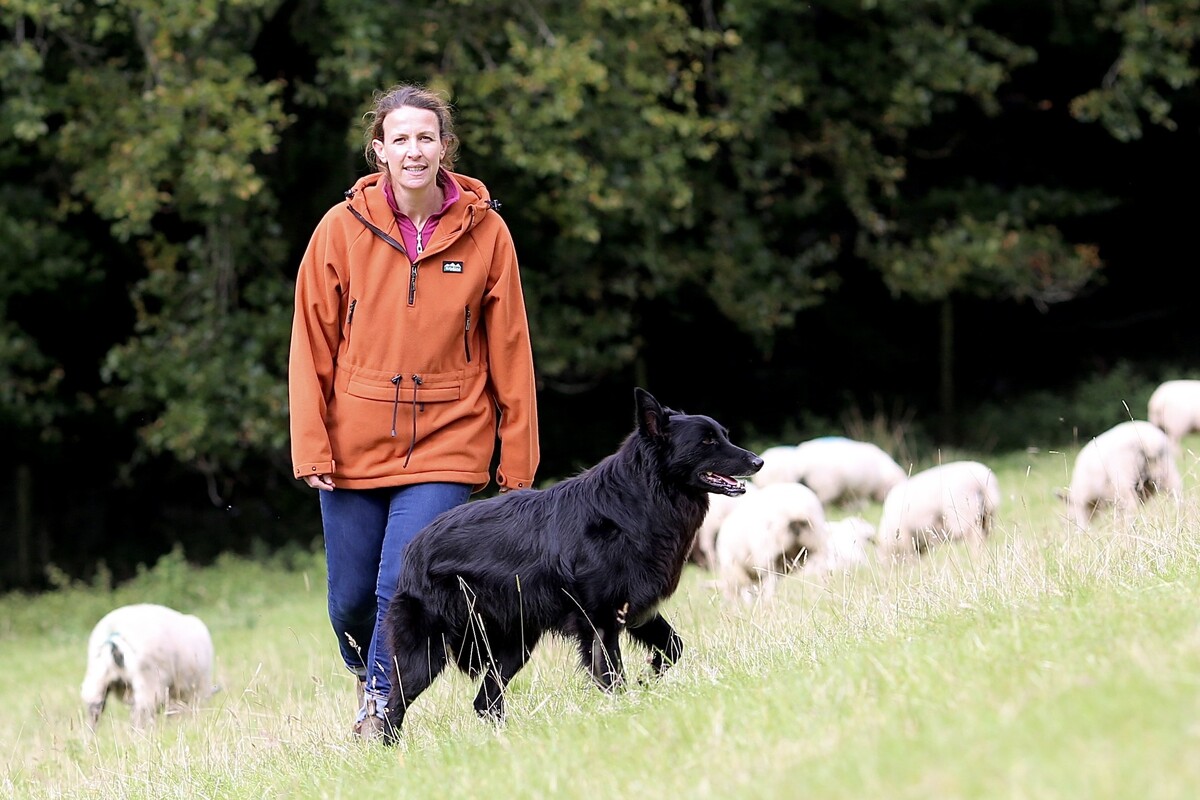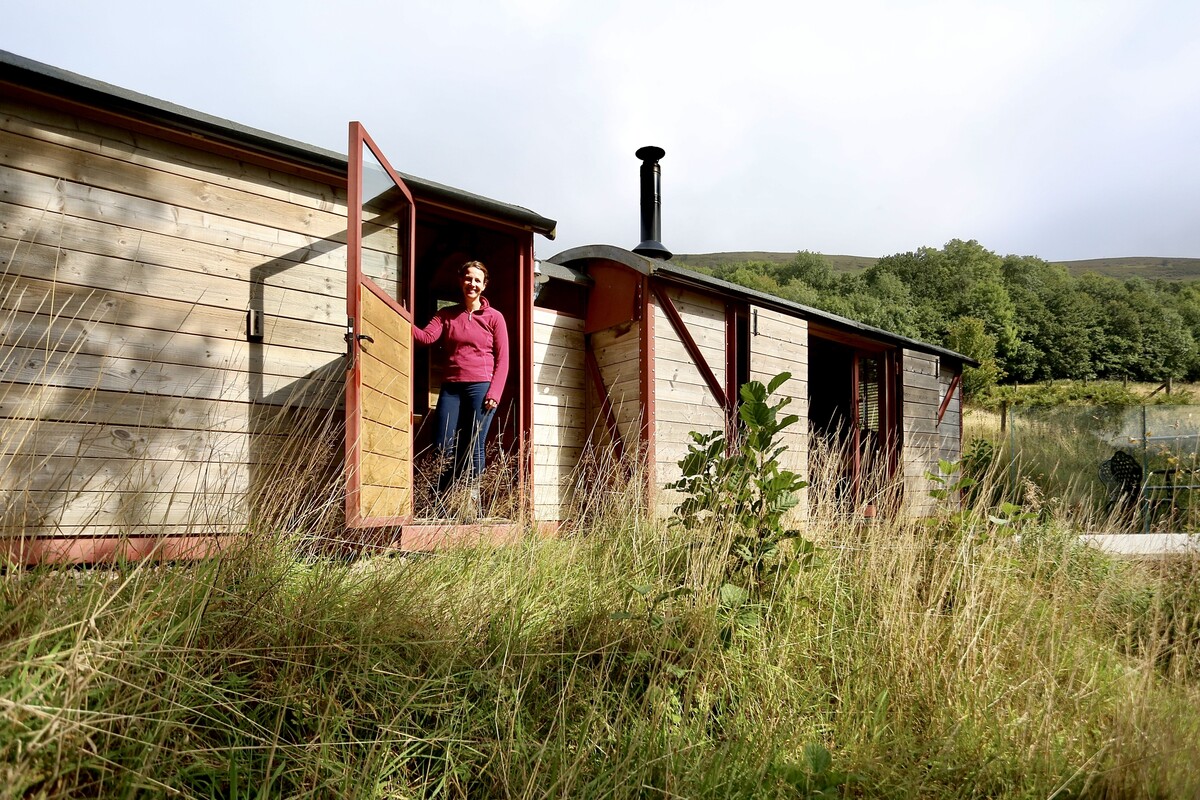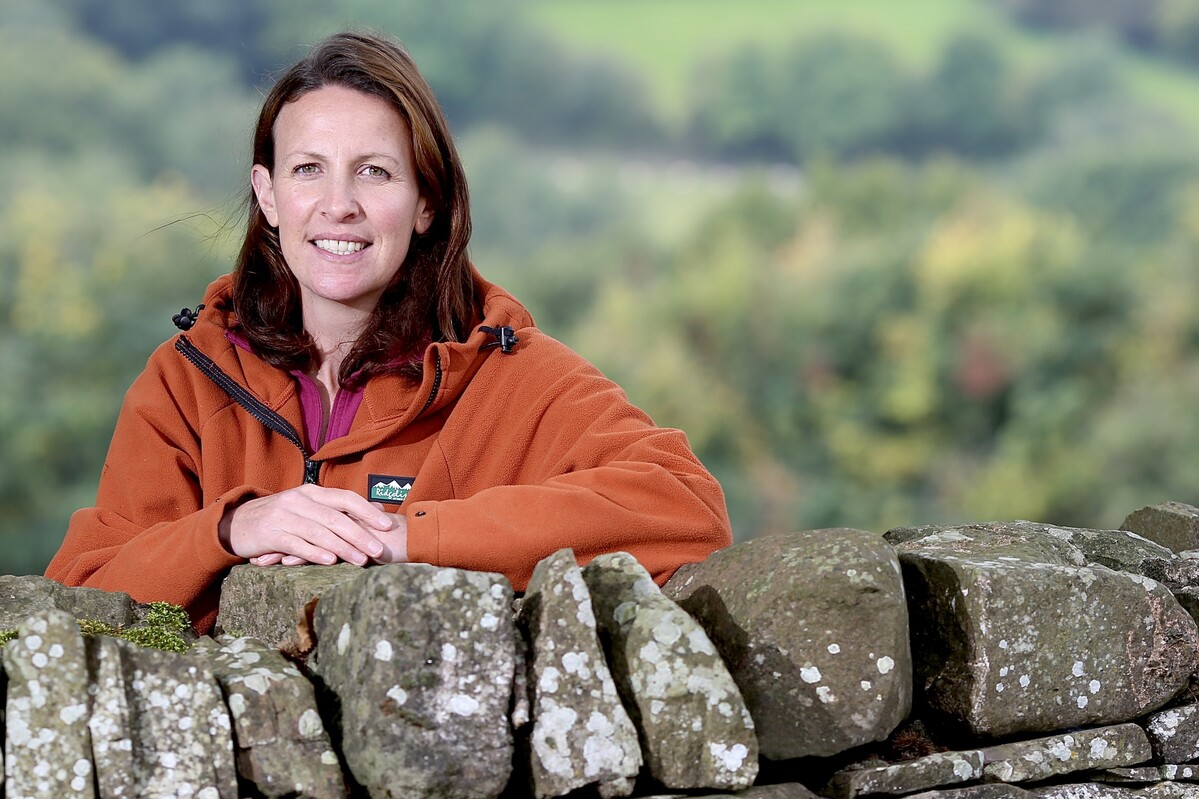Sitting at a picturesque vantage point on a hill at Court Farm, Llanthony, contemplating everything in life she had to be grateful for including that precious landscape, was a pivotal moment for sheep farmer Bryony Gittins.
The preceding two years had been tough for Bryony and her family as they navigated the thorny subject of succession, a fraught process that took a profound toll on her mental health and wellbeing.
Turning point
It was a friend who prescribed an action that was a turning point in her path to recovery – suggesting that she visited her favourite spot on the farm and took time there to remind herself of everything she had to be thankful for.
“He told me to take a photograph too, but I think that was to prove that I had done what he had suggested!” she laughs.
Although that in itself wasn’t the complete panacea, it was a defining moment, and she is now back to a semblance of her ‘old self’, a farmer, wife and mother who enjoys life and who makes every minute in every day count.

'Refreshingly candid'
Bryony is refreshingly candid about her experience as she believes it might help other farmers enduring similar struggles as it is widely accepted that poor succession planning and mental health are both common in farming, the two often inter-related.
She grew up at Court Farm, crossing the border from England into Monmouthshire as a five-year-old. Her parents, Colin and Cordelia Passmore, had farmed with family in Sussex and relocated to the 230-acre holding in 1987 to run their own business.
Bryony shared their interest in agriculture, but they wanted her to be certain that she was making the right decision before becoming a farmer, encouraging her to initially pursue a life away from the farm.
Away from the farm
After studying for a degree in zoology at university, a job at a bank in London followed and later a role as an outdoor activity instructor in Hay-on-Wye where she met her husband, Steve, who runs a garage in the town.
It was a few years after the birth of their two sons, Finn and Alfie, that Bryony became a farmer, hastened in part when Colin contracted orf from the sheep flock and became very ill from that.
“He thankfully recovered but it was a wake-up call, it jolted us all into understanding that working out a route forward for the farm needed to be a priority,” she recalls.
Joining the family farm
Bryony joined her parents on the farm and in 2017 became a partner in the business.
Colin’s health scare placed a greater urgency on succession planning but how to split a business in a way that was fair to all four children without compromising its ability to be sustainable? It proved to be a tricky and emotionally charged process. “It had a big impact on us as a family,” Bryony admits.
One impact was the pressure it put on her mental health. “It crept up on me silently, I didn't realise what was happening.”
That unwelcome visitor brought fatigue and brain fog, as well as a loss of purpose.
Gratitude list
With the support of friends, including the dairy farmer who had dished out the advice of taking time out at her favourite spot – the top of Court Farm – and make a gratitude list, and by adopting strategies that promote good mental health, Bryony has emerged from that dark place.
The transfer of responsibilities and assets to the next generation has also been agreed.
It was in fact the murmurings of the new Labour Government’s intention to change inheritance tax (IHT) rules on farmland that hastened succession.
Bryony now owns the farmland. “It was in fact the morning of 30 October 2024, Budget day, that we signed the papers,” she says.

Focus on the business
She feels able to focus on the business again, one that revolves around a flock of 650 breeding ewes and 170 replacements.
Making greater use of grazed grass, by keeping the flock outdoors for longer, including deferred grazing in combination with silage bales in the winter, is one area she is developing.
With support from Precision Grazing through Farming Connect, she has introduced rotational grazing and benchmarks the business with other farms in a discussion group.
The farm recently joined the Beacons Water Group to trial different grasses, monitoring which varieties are more effective at trapping rainfall and nutrients to prevent leaching.
Diversifications
There are also two holiday diversifications on the farm. A former railway carriage, once used for storing sheep feed, has been converted to an off-grid holiday hideaway, aptly named Llanthony Castaway given its tranquil location. A more recent addition is a glamping dome with a bedroom, ensuite bathroom and fully equipped kitchen.
“I know I am biased but they are wonderful places to retreat to, in peaceful locations with beautiful surroundings,” says Bryony.
It is indeed a stunning location, in the Vale of Ewyas with views of the Black Mountains and nestling next to a 12th century medieval priory.

Away from the farm
Away from her day-to-day farming responsibilities, Bryony was a member of the NFU Cymru Next Generation Group and recently joined the union’s Less Favoured Area (LFA) Board.
Some of the land she farms falls within a Less Favoured Area, including common land which the business has grazing rights to.
The previous iteration of Wales’ new environmental land management scheme, the Sustainable Farming Scheme (SFS), ruled out payments for graziers on common land and that was a source of worry for Bryony.
“A lot of our Basic Payment Scheme money comes from the common land,” she points out.
After pressure from the industry, the latest version of the scheme does entitle farmers with common land rights to baseline payments, but Bryony says the devil is in the detail, that how many farmers sign up to the SFS will depend on the level of payments offered to in return for actions.
“There is absolutely no doubt that most farms should be capable of delivering the universal actions but whether they will want to sign up to the scheme or not will depend on how much money is on offer from Welsh Government, balanced against how farmers will have to adapt to deliver those actions.”
Charities
As she reflects on her mental health struggles, Bryony is exploring ways she can help others who are wrestling their own demons.
She acknowledges that there are excellent charities that support farmers but suggests: “It would be good to catch people before they get to the point where they need reactive support from a charity or support organisation, to take a proactive approach in getting people to better manage their mental health so that it doesn’t deteriorate and they become unwell.”
Several strategies have helped her personally, including listening to the app, Headspace, and embracing the 45 minutes she has before the rest of the family get up in the morning, time to reflect on the positives over a quiet brew.
As Bryony looks to the future, and the prospect that one day one of her sons, now aged 12 and 10, or even both, may want to farm, she already makes topics around succession and tax planning part of everyday conversations with them.
“I don’t think people talk about succession enough and that’s what makes it so tricky when that discussion needs to be had, and it will have to be.
“I may only be 43 and retirement seems a long way off but having a plan is important, as is involving the next generation in discussions around the future at the earliest opportunity.”

